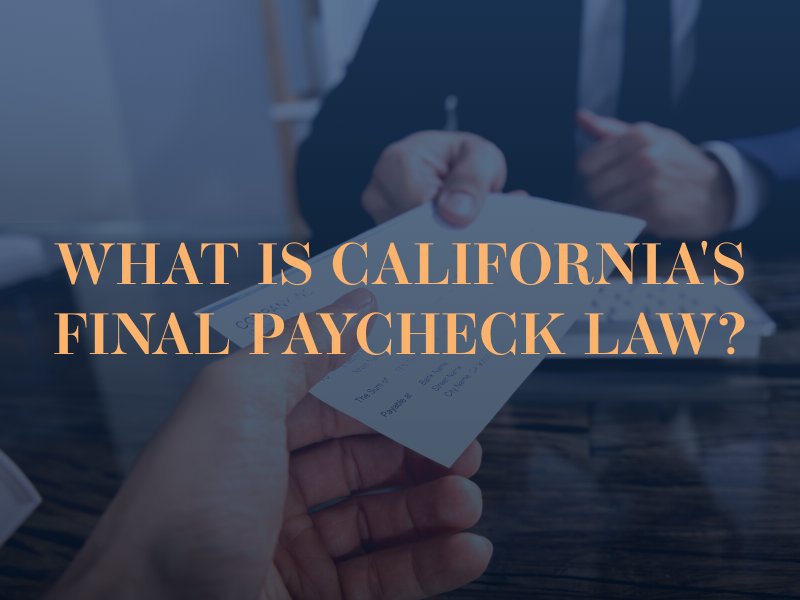California has continuously been on the front lines when it comes to employment law. The rights of employees are vitally important, and the state legislature has passed many laws regarding employee pay. When someone leaves a job, whether because they quit or because they were terminated, they are entitled to prompt payment of their final paycheck.

What Does the Law Say?
Most states have laws that govern how long an employer has to pay someone their final paycheck after they leave the job. California differentiates this time frame based on whether or not that person is fired or whether they quit.
If an employee is fired or laid off, they are entitled to their final paycheck immediately. This means that they should be paid at the time of termination. If an employee quits their job, the time frame differs depending on the situation. If an employee quits without giving the employer notice, they must receive their paycheck within 72 hours after leaving the job. However, if an employee quits their job but has given the employer at least a 72 hours’ notice before leaving the job, they must receive their paycheck immediately upon termination of the job.
What Are the Penalties for Employers?
Employers who fail to properly pay final wages when they are due could be subjected to serious penalties. Each day the employer is late paying an employee’s final paycheck, the penalty will be the daily wage for that employee for each late day. For example, if an employer waits 10 days before providing the employee’s paycheck, the employer will be liable for 10 days of wages as a penalty.
Even if the employer does provide a final paycheck within the specified amount of time, former employees may still be entitled to a waiting time penalty if they have not received all of their compensation. For example, if the employer only paid half of your final paycheck in the specified amount of time, and then paid the rest that they owed you two weeks later, you would be entitled to the two weeks’ worth of waiting penalties for the time you had to wait.
The only exception to the waiting time rules mentioned above is if you and the employer are involved in a good faith dispute about what you are owed. In this case, the employer may not have to pay the penalties mentioned above.
What About Other Payments?
California law also outlines protections for employees who have unused vacation time or paid time off (PTO). These amounts must also be paid to the employee within the specified time limits above. Under state law, California employees are entitled to all of their unused vacation days and paid time off upon termination.
What Are Your Legal Options?
Any employee who does not receive their final paycheck on time has a few options. First, you should always speak to a qualified Orange County employment lawyer about your case. An attorney will be able to guide you towards the appropriate path for a resolution. You can file a complaint with the California Division of Labor Standards Enforcement (DLSE). You may also have to file a lawsuit against the employer. Upon successful resolution of your case, you will be entitled to the money that you are owed in addition to the waiting time penalties for up to 30 days’ worth of pay.

